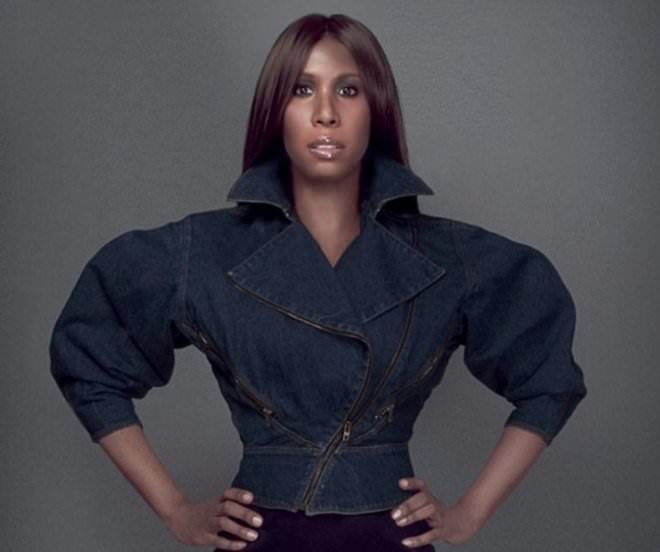What’s the secret to a truly great remix? Kristan Caryl asked five of our favourite masters to discuss their approach and explain the magic ingredients that can elevate a remix above and beyond the original track.

MK
Like a MAW Dub or a John Morales Mix, a remix from MK has long been a gold standard for artists looking to get reinterpreted by the best. Often outshining the original material, MK pioneered his own cut-and-paste house sound back in the 90s and is still one of the busiest in the game.
What is the art of the remix? It’s a great question. This is actually the first time anyone has ever asked me that. For me it’s very personal and a very easy answer: if I like the vocal enough and think I can take it apart and put it back together but make it more interesting and fun with my take on it, that will usually be a really good remix.
The bad ones? Well, I can’t really speak about those, since I learned a very long time ago not to do the ones that you aren’t feeling. It just never works out and ends up being a nightmare of callbacks, edits and do-overs. For me, my heart has to be in it to make a good remix and that usually takes a great vocal. I am a sucker for great vocals. I can’t just remix anything, even if I wanted to. I just can’t sit down and go on autopilot – it just doesn’t happen for me like that.
my heart has to be in it to make a good remix and that usually takes a great vocal. I am a sucker for great vocals.
When remixing, the original intentions don’t really come into play. There’s maybe one exception and that’s my remix of Bakermat’s ‘Teach Me’, which samples the legendary gospel diva Shirley Caesar. That one definitely is influenced by the original intention, which seemed to me to be about lifting your spirits, lifting your voices and the voices and spirits of all around you. I think that theme worked its way into my remix.
I like to work on a few things at once, but I don’t really have a rigid way I do things, just some general things that I usually do. Most times I use something from the original, but there are other times that I don’t use anything but maybe a phrase. I usually start with the vocals and build ideas around them. Adding your own stamp is definitely a learned and practised lesson. If you always add the same thing or make all the remixes sound the same, it would get boring very quickly. It’s one thing to have a recognised sound or signature, it’s another to do the same thing over and over again.
Some remixes are easier to do – sometimes I can nail them in an hour, afternoon or even overnight – but then there are other ones that just take so long, and I have to keep going back to them. It’s not always as easy as you might think. It could be the actual BPM, the vocalist, the timing, the sound of the singer’s intonation or it could be the record company is expecting one thing and you’re thinking another. Then there are the times when you think you know exactly what you are going to do and then it just does not work after all. That’s when I have to go work on something else to take a breather.
If you always add the same thing or make all the remixes sound the same, it would get boring very quickly. It’s one thing to have a recognised sound or signature, it’s another to do the same thing over and over again.
My favourite remix is really a tough question. There are a lot of them, I can’t just pick one… it’s like asking which one of your kids is your favourite. My newest ones are usually the most favourite since they are the freshest for me. I just finished remixes of Diplo and Ellie Goulding’s new single ‘On My Mind’ and I love those. I can tell you Nightcrawlers is still something I am very proud of, but I love the ‘My Head Is A Jungle’ remix, the ‘Teach Me’ remix, ‘Powerless’ by Rudimental featuring Becky Hill, ‘Reverse Skydiving’ by Hot Natured, the MK exclusive remix of ‘White Noise’, Lana Del Rey’s ‘West Coast’ and more.
Several people have done good remixes of my tracks. Route 94 did a great remix of ‘Always’, Tough Love did a new version of my remix for Jodeci’s ‘Freakin You’ and had a top five hit in the UK, and there have been many more. I even remixed my own remix at one time; Pete Tong commissioned me in 1995 to remix the remix of ‘Push The Feeling On’.
I would love to remix The Cure, Jamie xx, Depeche Mode, Beach House, Radiohead and The xx. I’m making my album now, so remixing is on the back burner for a minute, but I would definitely stop what I was doing for any of those.

MICHAEL MAYER
A master of melancholy and elongated grooves, Kompakt ringleader Michael Mayer is like Europe’s answer to Carl Craig: his elegant techno forms no know bounds, and whilst he remixes music from well outside the dance sphere, he never fails to conjure up something that sounds resolutely his own.
In its original sense, a remix was supposed to translate a song into a DJ-friendly dance track. So on paper, a good remix should be exactly what Steve Aoki did with that Celine Dion Titanic ballad. But do I really think this rule still applies today? Rather not. There’s hardly anything more painful than all these bootleg mixes of classics that just put a fat pumping tech-house beat below the original. I’d rather play the original. Probably not Celine Dion, though…
I’d always prefer remixing proper songs over a techno track. I find remixing techno tracks pretty boring.
In my eyes, a good remix should be an improvement of the original for dancefloor purposes. Which method is applied doesn’t matter to me. A total deconstruction works for me as well as just a careful re-editing. The decisive factor for a great remix is if the remixer really feels inspired by the original or if they just knocks out another one, like delivering pizzas.
It’s a matter of respect to the original artist to use as many original elements as possible while still turning the original track upside down. Overall, I’d always prefer remixing proper songs over a techno track. I find remixing techno tracks pretty boring. It’s like ‘OK, I’ll replace the kick drum with another one and put a different delay on the chords. Done.’ A song gives you many more opportunities: do I keep the song structure intact? Do I focus on just one vocal line that for me carries the most important message of the song? Or do I chop up the vocals and use only some hisses and ahhhs? I’d always try to keep an open mind. Sometimes I’d feel the urge to change the original’s atmosphere, like I did with Depeche Mode, when I turned a dark pop song into an uplifting Balearic house track. Sometimes I’d only rearrange the original song and build a new groove to make it work in my DJ sets. At some point I’d just let my intuition guide me.
Sometimes I can turn a remix around in one long studio night, others can take me weeks. It depends on the complexity of the original. When we did the Supermayer remix for Rufus Wainwright’s Tiergarten we faced the challenge to turn a very complex, richly orchestrated song into a dance track. The time stretching alone took ages. Then we ended up creating this 14-minute-long triptych that went from pop ballad to dark techno pop to psychedelic disco trance. It was an insane amount of work but I think I’ve never felt as much satisfaction again.
we ended up creating this 14-minute-long triptych that went from pop ballad to dark techno pop to psychedelic disco trance. It was an insane amount of work but I think I’ve never felt as much satisfaction again.
I’ve received some pretty spectacular remixes for my Mantasy album. The Barnt remix, Agoria’s take on ‘Good Times’ or Wolfgang Voigt’s ‘Sully’ remix are fantastic, but it was Matias Aguayo who touched me the deepest. His ‘Lamusetwa’ remix is like a megamix of some of my all-time favourite tracks: there’s a bit of Supermax’s ‘Lovemachine’, Fox The Fox’s ‘Precious Little Diamond’ and even a quote from my first solo production ever, ‘Frost’, in there. It’s probably the most beautiful present I’ve ever received. A real labour of love.
I’ve turned down many offers to remix all time favourite classics because I couldn’t see a way to improve them. I don’t even want to hear the stems because it would kill the magic for me. But having the opportunity to remix my heroes, The Pet Shop Boys and Depeche Mode, pretty much made all my dreams come true.

HONEY DIJON
Born and raised in Chicago but with a musical education that takes in the underground sounds and styles of New York and Berlin, Honey Dijon knows a thing or two about house and techno. She puts it to good use in both the diverse DJ sets she lays down, but also the compelling remixes she has put out on influential labels like Classic and Nervous.
In my opinion, a bad remix is one that adds nothing to the project and takes away the magic of the original; a good remix takes a great idea and presents it with a new perspective, but a great remix takes an already great idea to another level.
I only take on remixes if I like the project and I feel like I can add something to it. If I don’t connect emotionally, I cant add anything, so I don’t do it. I ask myself, ‘Can I make something I would play?’ If the answer is no then I pass. If I’m not excited by it, how can I expect other people to be?
If I don't connect emotionally, I cant add anything, so I don't do it... If I’m not excited by it, how can I expect other people to be?
Isn’t the point of being approached to do a remix to add your stamp or at least bring your voice to the project? Hopefully the artist or the A&R are familiar with your work and requesting you because of your sound. I don’t have rules, I just go with my gut instinct depending on the project. I will ask who else has been asked to remix the project and I try to get as much information as I can. Sometimes I’ll do more of a dub-type of remix with very little of the original, or maybe a synth part or bassline is all that’s needed.
I have turned in projects that were rejected because I used very little of the original, or they wanted more of the vocal included. It can be a challenge but I think those challenges take you outside of your comfort zone. So much music these days is just loops with effects and completely disposable, so I feel the end result is the sum of the parts you are given to work with.
I always start with the drums. I’ll listen to the original and the parts that get me excited the most are what I’ll take and build from there. I think the drums are the hardest part. To get the basic elements going is where most of the work comes in. Sidechaining, plugins, compression are also important, then the groove and the right sounds. Then the arrangement to build tension and release. Some people EQ each part along the way but I do that at the end because, to me, how music feels is just as important as how it sounds. If I can’t get it to sound right I will ask for help. I’m not ashamed. You can learn how to do things from people that do a different style of music than you, or have more engineering experience than you, or even a different perspective.
Ron and Chez, Shep Pettibone,Tom Moulton, John Morales, Mr G, Derrick Carter and Danny Tenaglia continually amaze me.
My favourite remixes? God, there are just too many to mention. Salsoul remixes by Larry Levan, Francois K remixes on Sleeping Bag, the numerous remixes by Masters at Work and David Morales’s Red Zone remixes are always inspiring. They are masters of reinterpretation in my opinion.
Ron and Chez, Shep Pettibone,Tom Moulton, John Morales, Mr G, Derrick Carter and Danny Tenaglia continually amaze me. They weren’t just remixing four-to-the-floor floor beat tracks but music with vocals and strings, melodies and chord changes with different time signatures. HNNY did an amazing job of my track ‘Thunda’ on Classic. He flipped the vocal, slowed the tempo down and completely changed the vibe. It’s exciting to hear how artists you respect envision and reinterpret your music.
My remix of ‘You Don’t Know’ by DJ Ali is one I am most proud of. It came together quite effortlessly and I’m happy with it sonically. It was fun to do and I still enjoy it. My dream remix would be Grace Jones. Her voice and the music she made with Chris Blackwell at Compass Point Studios still rock my world. I’m such a fan.

EWAN PEARSON
Brit Ewan Pearson has been an in-demand remixer for years. With a profile that extends way beyond the dancefloor, he is widely recognised as the man who can add an authentic electronic clout to music of all descriptions. From major label pop to cult club sounds, he truly knows how to flip the script.
Remixes are a weird intersection of this Venn diagram of art and commerce – part exploitative marketing ploy and part act of genuine creation. Which is one of the things I really like about it!
I grew up in the era of post-disco extended 12s being pumped out to boost major label chart positions, sometimes three or four different versions around a particular release. Then in the 90s we went through the era of remixes that didn’t really bear any relation to (or contain anything at all from) the original record. I liked the people that pushed the pendulum back a bit towards the ‘extended remix’ – for me it’s about making something work in a club without detracting too much from what made it itself in the first place. I have made plenty of remixes that completely transform the original track, but more of them have been about taking as much of the original as possible and doing what needs to be done to make it into a ‘dancefloor’ record in some way.
for me it’s about making something work in a club without detracting too much from what made it itself in the first place
When I was mostly remixing for major labels it was pretty rare for artists to be directly involved in the remix process, or rather it was rare for them directly to contact me – we were always dealing with A&R. But it did happen occasionally. I remember having a lovely phone conversation with Leslie Feist after Al Usher and I did our first version of ‘Inside And Out’. She asked if we could do a much more ‘fucked up’ one that wasn’t so respectful of her original. So we sampled the hell out of our own first mix to make a dub, remixing our own remix.
Goldfrapp were always quite demanding. I think I made five or six versions of my remixes of ‘Train’ and ‘Strict Machine’ until they were happy. When I did ‘Ride A White Horse’ I worked for two weeks solid up to Christmas to make a ridiculous 15 minute remix with five distinct sections, in part to bypass any of that. Will Gregory still asked me if I could take the end and put it at the beginning or something. At which point I told him – very nicely – that I was pretty certain it was ‘finished’. With smaller acts, friends and swaps I am often dealing with the artist, but usually people don’t give you much direction, they just let you get on with it.
A budget is nice, but that aside, I have to like a good deal about the original track otherwise my whole method of using lots of the original doesn’t really work. And I have to be able to think of a way of remixing it that pleases me but will also suit them or be of some use to them. I turned down some very big acts and quite a lot of money back in the day when I couldn’t square the two, much to the disappointment of my managers at the time. I got offered a Shakira remix after being recommended by Stuart Price, but I couldn’t think of a way to make the song in question work as a club thing. When I tried to explain why I was turning it down to her American A&R I think he thought I was quite mad. He never called again.
During that slightly bonkers period of being flavour of the month I got offered something like 120 remixes over the course of a year. For a while we were getting several offers a day. Out of those 120 I said yes to seven in total
During that slightly bonkers period of being flavour of the month I got offered something like 120 remixes over the course of a year. For a while we were getting several offers a day. Out of those 120 I said yes to seven in total, I think. I half-joke now that I should have run several studios and some programmers doing different ones at once – I would certainly be a lot wealthier than I am now. I could have posted parts off to ghost producers like lots of people do these days and raked it in! But sadly if you see my name on something it means I actually did everything, for better or worse.
It always starts with the parts – listen to everything, think about tempo, decide what you need and what you don’t and then just see where it takes you. I built my career on doing full vocal mixes, so if there’s a song then I’m trying to think about what works musically, if I need to re-harmonise, go more minor key or modal or whatever. For example, I remixed Foals’ ‘Olympic Airways’ and the first thing I knew I needed to do was to slow it down as it was well above 130bpm and I wasn’t about to do a hard house version! Thinking about the lyric, I knew I wanted to put it in this slightly Balearic house space, so that meant programmed drums, which meant Jack’s great drums had to go, then it was a question of opening out what was there – taking drones and keys that were very submerged in the original, opening the track with them, pushing the live bass which is such a massive hook even more to the fore, ending with a loop of the chanted vocal. And then I added a few little bits of additional keys – some organ, a synth stab. With something like that I try to add as little as possible really.
I’m very happy when there are lots of great parts and I can use most of it – as with Foals, or more recently with Jagwar Ma’s ‘Uncertainty’ – which was just a question of speeding it up a little, beefing up the drums slightly, muting a few things and dubbing sections out. Lazily, I am quite happy when I don’t have to add very much. As I said, I grew up in the era of the extended remix – the 12” remix was my music school. Like being given a little more access to the multitrack. It was listening to the 12” versions of New Order and other acts that taught me how to make music myself – that was as close as you could get to hearing the individual parts as extended versions unfolded the original music and laid it a little barer.
Remixes rarely come quickly for me. I think the quickest I’ve ever done one was my remix for Craig Bratley this year. The music pretty much came together in the course of three hours one evening while my wife was out and my baby was sleeping (I had one ear in the headphones and one ear out listening for squeaks). But I made up for it by then agonising over the mix for days. Generally they are always a slog, but that’s mostly how it is for me with everything. Painfully slow. You’d think I’d be a bit faster by now, but it always feels like starting over. When I listen back to old records I’ve made I have no idea how I did most of it.
My Chemical Brothers ‘Golden Path’ dub has had the best dancefloor reaction of anything I’ve ever done. I would love to repeat that!
The remixes I’m most proud of tend to fall into two camps – ones that you like because they get a great club reaction and then ones you like because of the music that you did. My Chemical Brothers ‘Golden Path’ dub has had the best dancefloor reaction of anything I’ve ever done. I would love to repeat that! Musically I think I’m proudest of my Cortney Tidwell remix.
Ah, I’ve just realised there’s a third category: bloody mindedness, ones you really slaved over and wouldn’t let go of until you were happy. I was really chuffed to have been asked to remix Jessie Ware as I loved the album, and then I had this daft idea that I was going to do pretty much all of it on a complicated modular setup with a lot of analogue sequencing, which was something I hadn’t done before (or since!), and I didn’t print any audio until the whole thing was finished. So each morning I would go to work praying that it still sounded like it was supposed to. Maybe that’s just relief then, rather than pride.

TODD EDWARDS
Todd Edwards isn’t affectionally referred to as The God for nothing: he’s a Grammy-winning producer and remixer who cuts and chops, slices and dices anyone from Justice to Beyoncé to, most famously, St Germain. His singular style is complex yet effortless, immediately recognisable yet always refreshingly inventive.
A good remix is one that satisfies the artist, the audience and myself. That’s not always the case though. I’ve made many remixes that at least one of those elements were missing.
It’s funny, but some of the remixes that I’ve spent the most time and love on trying to create good art, those remixes have gotten a mediocre response. Then there are those that I’ve done very quickly or feel uncertain about, and some of those ones have been very well received. I almost started to believe that the less l like a remix, the closer it will be to becoming a hit. Of course I’m joking… a little. What matters most is that the listeners, the DJs and the people at the club love it, because even if the artist isn’t happy with it, it will obviously reflect well on him or her. A really bad remix to me is one where I’ve gotten so involved in trying to make great art that it goes left field and misses the mark completely. I don’t think that’s happened too often, but there are a couple.
When I was younger, I wasn't even concerned with how much of the artist's original ideas were put into my remixes. It wasn't until my own work was put into someone else's hands that I began to think about how I would like my music to be changed.
When I was younger, I wasn’t even concerned with how much of the artist’s original ideas were put into my remixes. I was an eager producer focusing on making good music in a style I was trying to develop for myself. It wasn’t until my own work was put into someone else’s hands that I began to think about how I would like my music to be changed. As I grew as a producer I tried to be more respectful of the original song to be remixed. I made a conscious effort to keep the melody as close to the original as possible. Recently, however, I had an inspired talk with my manager, Alexis Rivera, in which he suggested going back to my roots. Remixing, like original production, is an ever-evolving process for me.
It always helps to like the song, or the artist or both. I’m not going to pretend that there aren’t advantages to remixing a well-known artist, but I have to feel good about the song before I take on the remix. There are times I have to turn down a remix because I’m working on other projects. I’m not good at spreading myself too thin. Remixing also takes a lot of creative energy that could be used for original material. I always put the same efforts into a remix that I would into an original production. After a good run, the creative energy is depleted. Trying to force creativity at that point is like trying to get the last drop of water out of a dry glass.
I approach remixes the way I approach original material. Either I centre the foundation around the drum patterns and bassline and keep the music more simple, or I focus on the intricacy of the music and keep the drums and bassline minimal. Obviously, the first idea works better in the clubs, but for a long time I was more focused on an attempt to make beautiful musical art, not dancefloor hits; I don’t feel they are one in the same. I treated all my work as a structured song, even tracks with minimal vocals. Usually I’d compose three parts: verse, bridge and chorus. Complex song structures – especially ones with hundreds of micro samples playing – might not work as well on the dancefloor as it would listening in your headphones, in the car or at home. Simpler tracks make for better dancefloor tracks, but I feel that tracks that take you on a musical journey stay with you longer.
Early on, I never listened to the stems of the original song other than the vocals. I also avoided listening to the original song more than once so it wouldn’t affect my potential vision for the remix. It almost bordered on superstitious. In more recent years, I’ve been open to using sounds from the stems sent to me. It’s good to approach things differently, however I still do try to stay away from listening to the original song too many times.
I don’t feel there are too many rules to follow when making a remix. I was hesitant when I began altering my approach. I was concerned that if I didn’t use a lot of samples or made the music too simple, it would come off as not giving 100% – which will never be the case. I work so hard on my work as it is my life. Being a musician is the luckiest job in the world.
A great soulful female vocal will always inspire a remix. Lion Babe’s ‘Jump High’ and Para One’s ‘Elevation’ are perfect examples. With such beautiful vocals, ideas come to mind quickly and lead the direction of the groove.
There have been down times over the last two decades where remixing was necessary to help pay the bills. I’ve remixed a few cheesy pop songs in my day. That can be difficult because it’s hard to take the lyrics seriously. When this is the issue, I’ve tried to make the music as deep and dark as possible to counterbalance the lyrics. Sometimes a bad vocal can lead to some really creative musical ideas to make up for the lack of inspiration. I’m thankful to be in a position in which I can pick and choose what to remix, but I am appreciative of all the remix opportunities I have received.
There have been down times over the last two decades where remixing was necessary to help pay the bills. I've remixed a few cheesy pop songs in my day.
I’ve tried over the years not to repeat chord movements or musical ideas in general, but the more music you make, the better chance there is of repeating yourself at some point. It might be from just forgetting that you’ve done something already – I mean it has been 20 years! Only the diehard fans could call me out on that. I’ve actually had a couple of fans mention on Twitter that I recently used a sample that I used 15 years ago. It wasn’t even a vocal sample, it was a musical sound! I’ve only repeated sounds in about five tracks or remixes in my whole career, but I’m not that concerned about repeating myself anymore. If I use something I did 10 years ago, younger fans might not even know my back catalogue, so it won’t be a repeat to them.
There is also the struggle to think outside the box. I think that almost every producer wants to make music that has buzz or be a hit. It’s easy to play it safe unintentionally if you come up with a unique idea that you like at first but then start to doubt. But before you know it, you’re following a formula. The best approach for me now is to work quickly and not overanalyse the track. The first idea is usually the best. Every track or remix that has received a strong response was completed in a 24- to 48-hour window. For some reason I used to forget that fact. It’s so easy to get lost in your own mind and lose perspective of what the goal of the project is.
I would have to say because of how well it was received that my remix of ‘As I Am’ by Sounds Of One is my favourite. It was 1992 (I think) and I had just left the first record label I had worked with. I remember my mother expressing concern: “Why did you leave the label? You had a good thing there!” Mom always panicked. The label was going under, and I didn’t trust the situation at all. My first thought was reaching out to Roger Sanchez, who had shown interest in a few of my tracks. I told him my situation, and I asked if he had anything I could work on to get my name out there more. The rest is history. I knew once I made the bassline on my Juno-106 and made the drum patterns that I had something good. Again it took only 48 hours. It has had the most longevity of all my work.
Every track or remix that has received a strong response was completed in a 24- to 48-hour window.
I would say anything by Masters At Work from 1990-1995 is exemplary. I stop at ’95 because I didn’t listen to as much house music for a while beyond that date. There are several producers I owe my style to, but as far as overall impact, MAW are at the top of the list. It’s a toss-up between their dub of Björk’s ‘Violently Happy’ and their dub of St. Etienne’s ‘Only Love Can Break Your Heart’. I started trying to imitate Kenny Dope’s drum programming – as if that were possible! I did use his snare pattern though, which was part of the backbone of my contribution to the UKG scene. They are still my favourites today for the remixes that inspired me.
For years I’ve wanted to remix Björk. I guess she isn’t interested! But there’s always that possibility. I would love to work with Imogen Heap. Her vocals are perfect in my opinion. They are exactly what I would sample and use as instruments. Her melodies are haunting and have a lot of depth. She made a song, ‘Say Goodnight And Go’, about a stalker… do your think she would appreciate that approach to getting a remix?

07.42 PM
“In my eyes, a good remix should be an improvement of the original for dancefloor purposes.”
Meh, for dancefloor? really? so remixes are for dancefloor only?
BS…